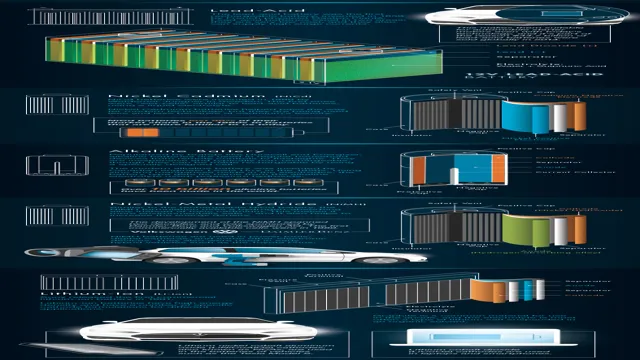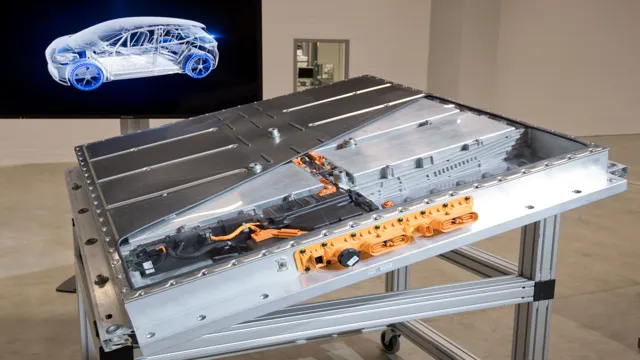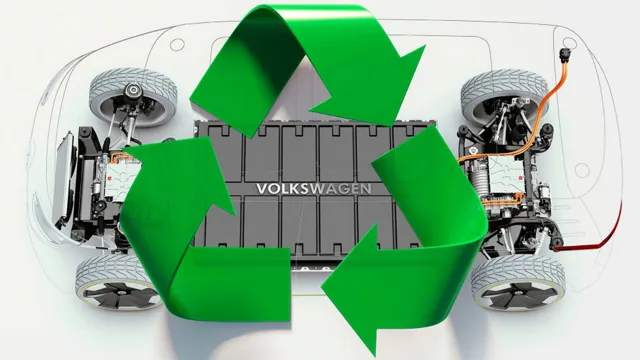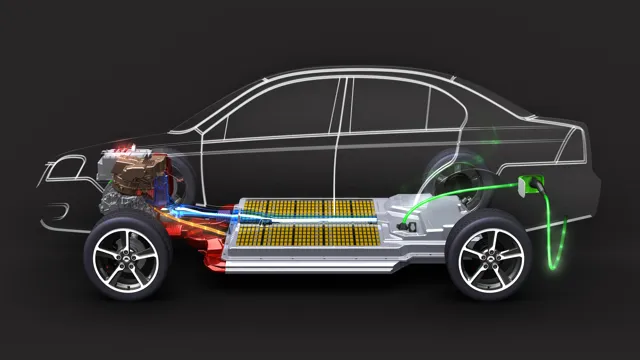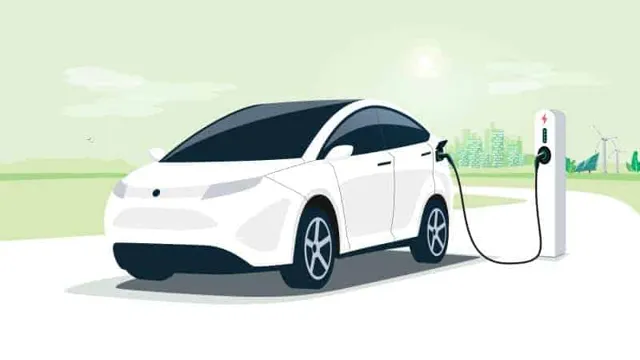From Lead-Acid to Lithium-Ion: The Evolution of Electric Car Batteries
Electric cars have become a popular alternative to traditional vehicles, with people opting for their environmentally-friendly and cost-effective advantages. One key component powering these vehicles is the battery, and the evolution of this technology has come a long way. From nickel-metal-hydride batteries to lithium-ion batteries, electric car batteries have seen significant improvements in terms of energy density, longevity and overall performance.
The development of electric car batteries has been driven by the need to make them more efficient and reliable, while also decreasing their cost and increasing their range. As a result, new battery technologies have emerged, such as solid-state batteries and lithium-sulfur batteries, that promise to boost the performance of electric cars even further. As more and more people begin to embrace electric cars, the demand for improved battery technology is only going to increase.
It’s exciting to see how far we’ve come in such a short period of time, and it’s even more exciting to see where this technology will take us in the future. So, how have these batteries evolved over the years? Let’s take a deep dive into the evolution of electric car batteries and discover how they’ve become the powerhouses they are today.
Early Years
Electric car battery evolution has come a long way since its inception in the early years. With the rise of electric vehicles as a viable alternative to gas-guzzling cars, battery technology has undergone significant improvements to meet the energy demands of modern transportation. In the early years, electric vehicles were severely limited by their battery’s capacity, which was a significant barrier to their widespread adoption.
However, with the introduction of lithium-ion batteries in the 1990s, electric vehicles gained a much-needed boost. Lithium-ion batteries allowed for increased energy density, longer driving ranges, and faster charging times, making them an attractive option for car manufacturers. As electric car battery technology continues to evolve, the future looks promising for electric vehicles as they become more efficient, affordable, and widespread.
Lead-Acid Batteries
Lead-acid batteries have been an essential component of energy storage for over a century. The history of these batteries can be traced back to the 1850s, but it wasn’t until the late 1800s that they began to be used in practical applications. In 1859, French physicist Gaston Planté invented the lead-acid battery, which used lead and lead oxide plates submerged in a solution of sulfuric acid to generate electricity.
However, early versions of this battery were bulky and required frequent maintenance. It wasn’t until the 1880s that improvements were made to the design of the lead-acid battery, making them more practical for use in automobiles and other applications. Today, lead-acid batteries are still widely used in everything from automobiles to large-scale backup power systems.
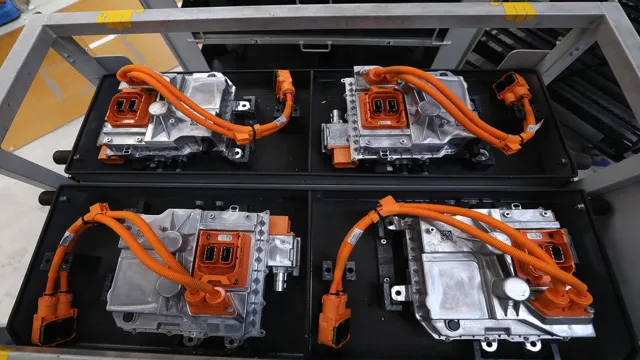
Nickel-Cadmium Batteries
Nickel-Cadmium batteries, also known as NiCad batteries, were among the first rechargeable batteries developed. Invented in the early 1900s, they were widely used in portable electronic devices and early cordless power tools. The NiCad battery’s chemistry involves cadmium oxide and nickel oxide electrodes immersed in potassium hydroxide electrolyte.
One major advantage of NiCad batteries is their ability to withstand high discharge rates and temperatures, making them suitable for demanding applications. However, they also have some drawbacks, such as their high self-discharge rate and limited capacity. Despite these limitations, NiCad batteries were widely used until the development of newer, more efficient battery technologies.
The Rise of Lithium-Ion Batteries
The evolution of electric car batteries has come a long way since its inception. In recent years, lithium-ion batteries have revolutionized the way we power electric cars. These batteries are lightweight, compact and can store a large amount of energy making them perfect for electric vehicles.
The increase in demand for electric cars has led to the development of more efficient and reliable batteries. The technology is advancing quickly, and we are seeing longer ranges and faster charging times thanks to lithium-ion batteries. The benefits of using these batteries go beyond electric cars, as they are used in mobile phones, laptops, and other electronic gadgets.
This versatility brings economies of scale and improvement in efficiency, making electric cars more affordable. The rise of lithium-ion batteries has made electric cars more practical and given them a brighter future, as we continue to move towards a more sustainable and eco-friendly transportation sector.
Advantages Over Previous Batteries
Lithium-Ion Batteries The rise of lithium-ion batteries has been a major breakthrough in the world of energy storage technology. These batteries have a number of advantages over previous batteries, making them the go-to choice for many applications. One of the great benefits of lithium-ion batteries is their high energy density.
This means that they can store a lot of energy in a small space, making them ideal for use in portable devices, such as smartphones and laptops. Lithium-ion batteries are also highly efficient, which means that they can convert stored energy into electricity with very little waste. Another advantage of lithium-ion batteries is their long lifespan.
They can last for hundreds of charge cycles before needing to be replaced, which means that they can provide reliable power for years to come. Overall, the rise of lithium-ion batteries has been a game-changer, enabling us to power our lives and devices in more sustainable and efficient ways.
Development of Lithium-Ion Batteries
Lithium-Ion Batteries The development of Lithium-Ion batteries has revolutionized the way we think about portable power. These lightweight, high-capacity batteries have become the go-to choice for everything from smartphones to electric vehicles. But their rise to prominence wasn’t an easy one.
It took decades of research and development to create batteries that were safe, efficient, and powerful enough to meet the growing demand for portable electronics. In the mid-1980s, researchers at the University of Texas began experimenting with Lithium-Ion technology. They discovered that Lithium-Ion batteries could deliver significantly more power than traditional rechargeable batteries while also being much lighter and smaller.
Over the years, numerous improvements were made to the design and materials used in Lithium-Ion batteries, making them the dominant technology in portable power. Today, Lithium-Ion batteries are found in virtually every portable electronic device and are even being used to power electric cars and store renewable energy from solar panels and wind turbines. With their high energy density and low maintenance requirements, it’s no wonder that Lithium-Ion batteries are the future of portable power.
Improving Lithium-Ion Batteries for Cars
The rise of electric cars has led to the prominence of lithium-ion batteries. They offer high energy density, enabling them to hold more charge while weighing less, making them ideal for electric vehicles. Lithium-ion technology has undergone significant improvements in recent years, leading to better performance, longer lifespan, and lower costs.
However, there’s still room for more improvement, especially when it comes to electric car batteries. Researchers are focusing on developing lithium-ion batteries that can hold more energy and charge faster. They are exploring various materials and designs for the batteries’ electrodes, separators, and electrolytes to achieve this goal.
This advancement in battery technology will go a long way in making electric vehicles more affordable, practical, and attractive to consumers.
Solid-State Batteries and Beyond
Electric car battery evolution has come a long way since the inception of EVs. In recent years, solid-state batteries are becoming increasingly popular as an alternative to traditional lithium-ion batteries. The main advantage of the solid-state battery is that it eliminates the flammable liquid electrolyte, thus posing less safety risks.
Additionally, it has higher energy density, longer lifespan, and faster charging time, making it more efficient for EVs. However, despite the benefits, solid-state batteries are still in the development stage, and their high production cost remains a significant challenge. In the meantime, researchers are exploring other options, such as lithium-sulfur, solid Lithium-air, and Zinc-air batteries.
Although these technologies are not yet commercially viable, they have the potential to revolutionize the future of electric car batteries. As we move towards a more sustainable future, developments in battery technology will play a crucial role in the success of EVs, and we can expect to see significant advancements in the coming years.
What Are Solid-State Batteries?
Solid-state batteries are the next generation of batteries that promise to revolutionize the way we use energy. Compared to traditional lithium-ion batteries, solid-state batteries use solid electrodes and electrolytes instead of liquid ones. This makes them safer, more reliable, and more energy-dense.
This technology is still in the early stages of development, but its potential applications are endless. Imagine a smartphone that lasts for days on a single charge or an electric car that can go for hundreds of miles without needing to be recharged. With solid-state batteries, this could soon become a reality.
However, there are still some challenges that need to be overcome before these batteries can become widely adopted. These include manufacturing challenges, cost, scalability, and more. But the future looks bright for solid-state batteries, and we can’t wait to see what developments are in store.
Potential Benefits for Electric Cars
As electric cars continue to gain popularity, advancements in technology are being made to improve their performance. One potential game changer is the development of solid-state batteries. These batteries use a solid electrolyte instead of a liquid one, which can increase energy density and improve safety.
In addition, they have the potential to charge faster and last longer than traditional lithium-ion batteries. While still in the research and development phase, if successful, solid-state batteries could greatly enhance the driving range and convenience of electric cars. Beyond solid-state batteries, other innovations such as wireless charging and supercapacitors could further improve the capabilities of electric vehicles.
As the technology continues to evolve, the future of electric cars looks increasingly bright.
Future of Electric Car Batteries
As electric cars become increasingly popular, the evolution of electric car batteries is a hot topic of discussion in the automotive industry. Manufacturers are working to improve the performance, range, and cost of electric car batteries to make them a more viable option for consumers. One area of focus is on the use of solid-state batteries, which offer higher energy density and potentially reduce the risk of fires that have been associated with current lithium-ion batteries.
Additionally, research is being conducted on the use of sustainable and recyclable materials for battery production, further reducing the environmental impact of electric cars. As the demand for electric cars continues to grow, it is likely that the evolution of electric car batteries will continue as well, leading to more efficient and affordable options for consumers.
Conclusion
From humble beginnings to revolutionary innovations, the evolution of the electric car battery has been a shocking ride. As technology continues to advance, the once thought unattainable goal of long range electric vehicles is becoming a reality, sparking a new era in the automotive industry. So let’s charge on, and revel in the power of progress.
“
FAQs
What are the different types of electric car batteries available in the market today?
The most common types of electric car batteries are lithium-ion (Li-ion), nickel-metal hydride (NiMH), and lead-acid.
How has the evolution of electric car batteries improved the driving range of electric cars?
With advancements in battery technology, electric car batteries now have a much higher energy density, which allows for longer driving ranges on a single charge.
Are electric car batteries recyclable, and what is the process for recycling them?
Yes, electric car batteries can be recycled. The process involves discharging the battery and then breaking it down into its component parts, which can then be reused or properly disposed of.
Can electric car batteries be charged using renewable energy sources such as solar power?
Yes, electric car batteries can be charged using renewable energy sources, such as solar power. This not only reduces the carbon footprint of the vehicle but also lowers the cost of charging over time.
